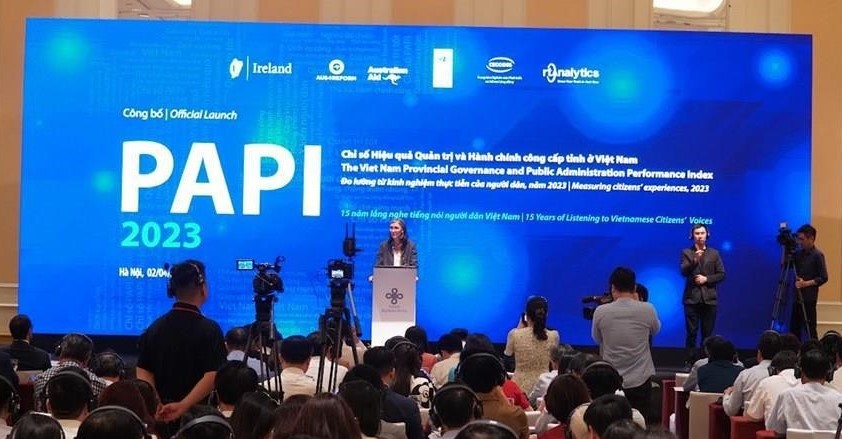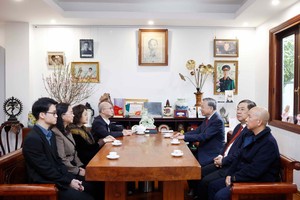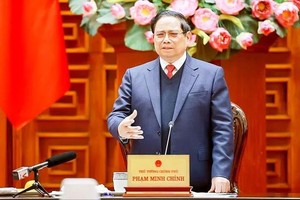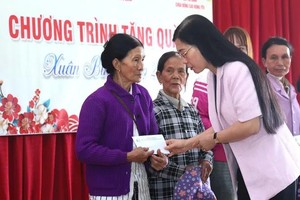
The state of the economy and household prosperity were the top concerns for citizens.
In his opening remarks, Duong Trung Y, Vice President of the Ho Chi Minh National Academy of Politics (HCMA), reflected on the important results that the HCMA and the United Nations Development Programme (UNDP) have achieved together during the 15 years' formulating and developing the PAPI Indicators. These have consistently contributed to positive and systematic changes in Vietnam's public administration.
Objective metrics such as PAPI, the Provincial Competitiveness Index (PCI), or the Public Administration Reform Index (PAR Index), serve as important benchmarks for evaluating the effectiveness of public service delivery by ministries and local administrations. Furthermore, they offer important suggestions for Vietnam to advance its national development policy, implement the National Digital Transformation Strategy, and foster a people-centered and inclusive state, ensuring that no one is left behind, he said.
A record of 19,536 respondents from across the country participated in the 2023 PAPI survey. Based on their responses, Control of Corruption in the Public Sector and E-Governance were the key PAPI dimensions to register progress relative to 2021 and 2022. Transparency in Local Decision-Making, conversely, saw a drop. The remaining five dimensions of local governance, public administration, and service delivery saw little change relative to the preceding two years.
With corruption high on the agenda for both the Party and citizens, the results on Control of Corruption in the Public Sector and Transparency in Local Decision-making are significant, even if they paint contrasting pictures.
The improvement in citizen perceptions on control of corruption at the local level rose only modestly, from 6.71 points in 2022 to 6.77 in 2023. The slight improvement, however, also aligned with citizen rankings of national issues of greatest concern. Corruption dropped from being the fifth national issue of greatest anxiety for citizens in 2022 to the sixth in 2023.
Citizens reported a perceived decline in five out of the eight types of corruption measured by PAPI. These are the diversion of state funds, bribes for land use rights certificates, bribes to avoid environmental regulations, bribes for teachers' favoritism, and bribes for better public health service. Despite this progress, more respondents believed that informal payments were needed to secure State employment in 2023 compared to 2021.
Another key PAPI focus in 2023 was e-governance, following the Government’s push to expand digital citizenship. Last year, access to the internet and access to provincial e-governance portals both rose relative to 2020. At the same time, while nearly 80 percent of the PAPI survey respondents in 2023 had internet access at home, the results also highlighted digital divides. Access to the internet varies across gender, living areas, ethnicity, and migrant status.
However, findings revealed that citizens are slow to switch to e-governance, with just 8.3 percent and 7.6 percent of the respondents using the umbrella National E-Service Portal (NESP) or Provincial E-Service Portals (PESP) available in all 63 provinces, respectively. A reason for the limited users is privacy concerns, as stated by one-third of the users.
These findings underline the need for substantial improvements to make services more accessible, user-friendly, convenient, and inclusive for all citizen users. A practical measure is to design a single-device approach to online public service portals so that users can access them from anywhere with smartphones. Addressing citizens’ privacy concerns is also important.
Since its inception 15 years ago, PAPI has collected the voices of 197,779 citizens from all demographic backgrounds on the state of governance and public service provision at the local level. With its wealth of quantitative data, PAPI has emerged as a trusted, citizen-centric tool to inform the country’s legislative and policy agendas and the action plans of all 63 provincial administrations.
























